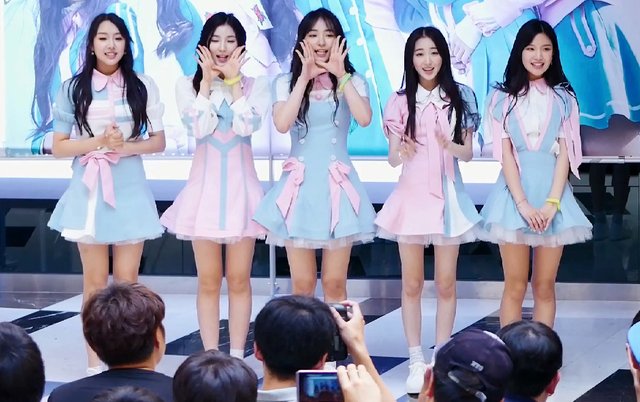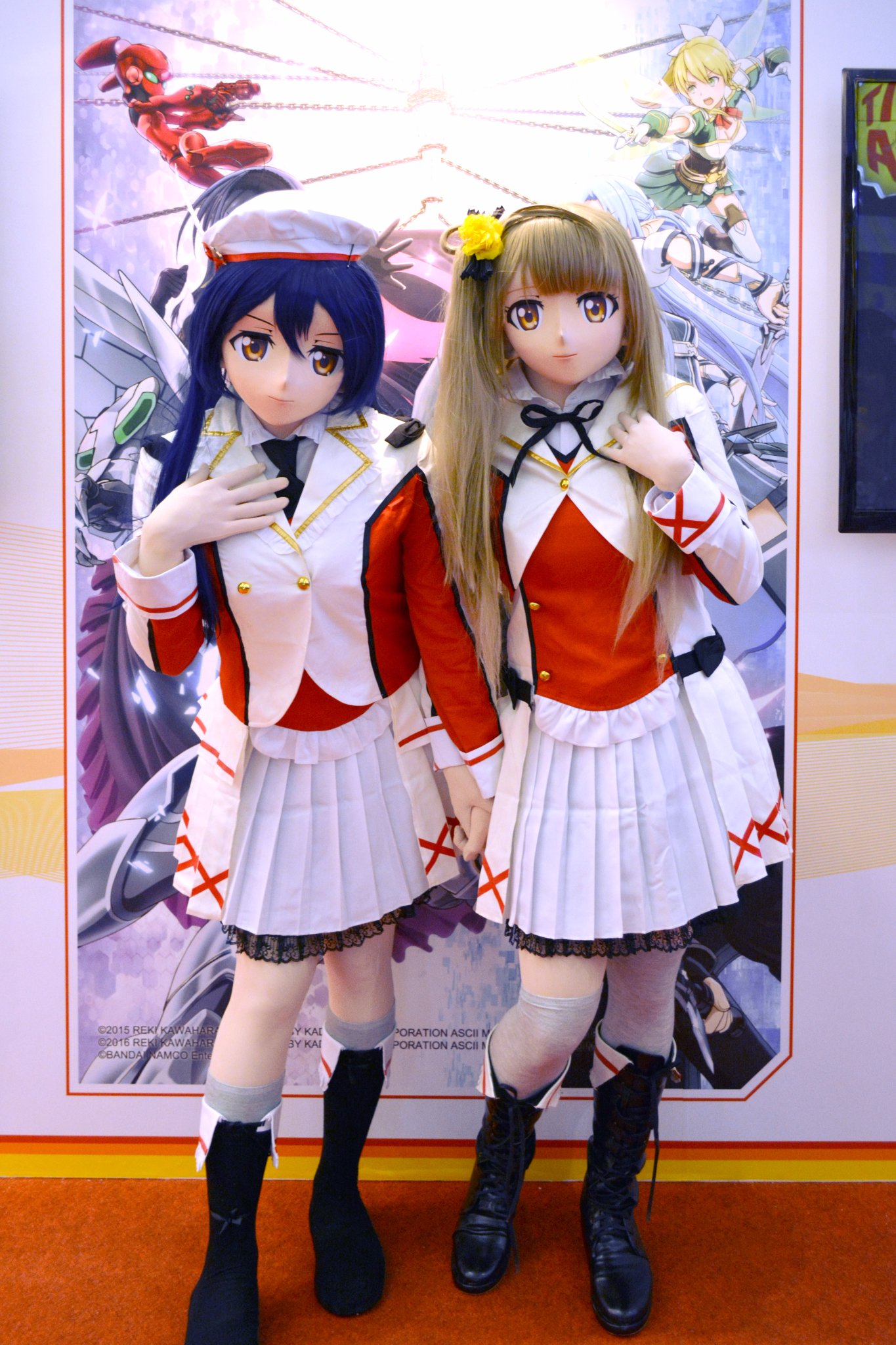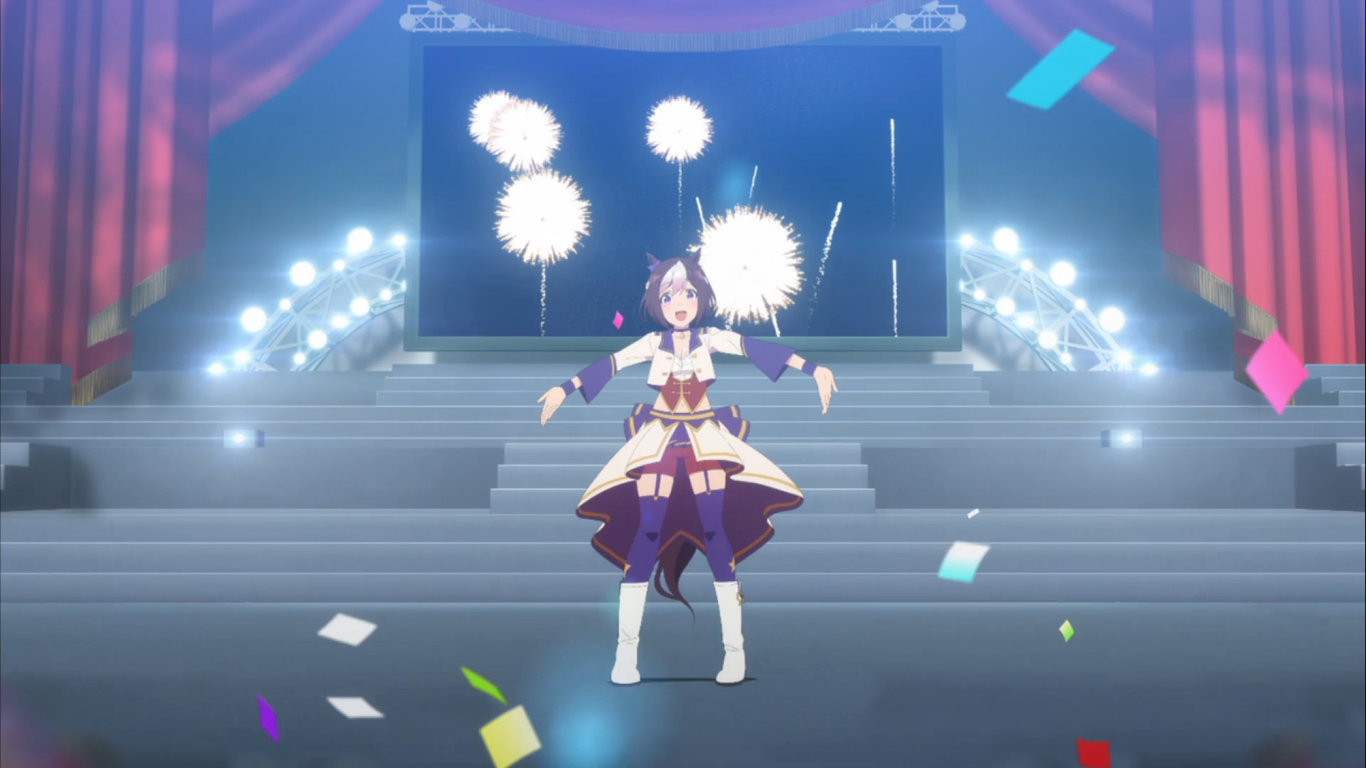I Don't Think Idol Culture Should Be A Part Of Otaku Media
So here’s a statement for you right off the bat: I don’t think Idol Culture should be represented in anime, video games, and Otaku media in general. I’m not saying they’re an unnecessary inclusion. I’m saying that from a moral perspective, a case could be made that Idols and their aesthetic shouldn’t be a part of the overall narrative lexicon of Otaku orientated tropes and stereotypes.

Even if you don’t like Idols, and you might even hate them more than I do, I think that statement should be setting off a lot of red flags. Even if you personally don’t like something, that’s no reason to restrict an artist’s freedom of expression, or even a company’s cynical right to market to and pander to certain demographics for the sake of profit. Even if you think Idols are cynical and exploitative, there’s no laws that suggest the idea should be banned. But bear with me, I’m going somewhere with this.
First, I should outline why people would even have a problem with Idols to begin with. Idols are young, often underage girls (by western standards) who sing J-Pop songs for an increasingly wide audience. Many might compare them to our Pop artists over here in the west, like Miley Cyrus or Taylor Swift (forgive me, I don’t know if they’re still relevant or not) but in fact there’s a fair amount of difference. For one, the purpose of Idols is to provide a fantasy first and foremost, with the music itself being far less important than the girls themselves being cute and inviting. While there’s an element of this in western music, the idea that idol girls are ‘real waifus’ as it were is somewhat central to their appeal. As such their stage personas and songs are carefully designed to cultivate a fanbase that primarily wants to date the idols first and foremost. The implication being, of course, that Idol fans simply can’t get a girlfriend, and as such need a fantasy presented by these girls to keep themselves going. Even if you happen to be a fan of Idols whilst still being lucky in love, the implications of this culture are more than a little creepy to anybody who isn’t directly a fan. When you include the stress these poor girls are put under, such as not having sufficient privacy, and being punished by the public whenever their off-stage persona deviates from their on-stage persona, it gets even worse. And that’s even before you consider the high likelihood that many of these girls are sexually assaulted or blackmailed backstage, with producers threatening their careers.
Going into the history of idols would take a long time, and I couldn’t tell you if the chicken or the egg came first in regards to the Idol aesthetic. Whether it was anime that gave inspiration to the real life scene of Idols in Japan as they exist today, or whether anime took inspiration from Idols. For the purposes of this discussion, what came first is irrelevant. All I care about is that there is significant overlap among Japanese Otakus who like real life idols, and fans who care about fictional idols in anime and games, or who like Vocaloid characters such as Hatsune Miku. However, this is where anime comes in.
Anime, video games, and vocaloids are perfect advertisements for the Idol culture, even if they don’t directly reference real Idols such as AKB48, and largely stick to fictional characters and bands. This is because the fictional characters can be presented as being 100% authentic both on the stage and off the stage. In anime, any character can become a waifu or a husbando or whatever to their fans, the fan practice extends beyond the Idol genre. But with this element already being a part of many anime, it naturally made sense to merge Idol culture and anime culture together. So natural that I’m sure many anime studios produce narratives about Idols with pure sincerity, because they were artistically inspired by Idols, and not necessarily because it means good business, though doubtlessly I’m sure plenty of anime have been made to cynically cater to fans of any aesthetic. But the fact that any amount of sincerity can be detected at all is impressive.

In a way, I think it expresses the wondrous way in which Otaku fans and creators can express an absolute sincere love to something so clearly fake. In the west, we have a much greater obsession with the ‘real’. our movies must reflect reality, our games are measured not by their artistic style but by how realistic their graphics and physics are. And this extends beyond mere superficial elements of reality, our emotional expression must also be authentically ‘real’ as well. We have an obsession with nuance and complexity, with expressing things ‘as they are’. As such even our fantasy and sci-fi stories must be heavily detailed in order to be believable settings, or, failing that, sufficiently dark in tone because somewhere along the time we conflated ‘darkness and grit’ with somehow representing something ‘more real’. Notably the Marvel films seem to be breaking this trend over here, by being goofy and fun and rolling with the unreality, and perhaps their popularity is a sign that realism isn’t the be all and end all of narrative. If you haven’t guessed by the way I’m presenting things, I have a preference towards my fiction being as unreal as possible. I want to experience authentic emotions, of course, I want fiction to express ideas that feel true to the human experience. But I also believe that through our fantasies and imaginations, we can discover more about ourselves that go beyond the trappings of the world in which we currently exist, something that transcends the culture we’re trapped in. I don’t like the idea that artists should be pressured into constructing worlds and characters that make logical sense. What matters more to me is that their stories make emotional sense. On a more mundane note, I also just think weird and wacky fiction is more entertaining, and I like the distraction from the real world. Very little else does any of these things better for me than anime.
This brings me back to Idol culture. The problem is that Idols blur those lines between fiction and reality, and not in a good way. Anime is almost never critical of Idol culture, they present worlds in which Idols face none of the issues that they face in the real world. More accurately, they create characters who have a strong enough work ethic and an authentic enough desire to please their fans that the issues real Idols do face are irrelevant in anime. And of course, all their producers are nice enough people who want to do nothing more than to cultivate the talent of these girls, and any perverted sentiments expressed by either the Idol’s fans or their producers are played off as a cute joke rather than as any sort of even mildly serious issue.
Fiction has a real effect on our psychology, even if they don’t directly indoctrinate us into taking serious actions. Video games don’t cause us to commit acts of violence, and Idol anime don’t make us sexually assault young girls. But it could be argued that guns normalise the idea of violent acts committed by other people, such as the military perhaps, and normalise the idea of guns being kept in American homes. Maybe. You could make that argument, and I don’t have time for that here. What’s more important is that by the same token, you could argue that Idol Anime normalise Idol culture and the conditions under which these girls work under. Maybe I’m just trying to justify an potentially irrational distaste for both Military shooters and Idol Anime, but this is another reason why I feel that fiction both doesn’t need to be about real institutions, and shouldn’t be about real institutions. Because unless you’re going to present them realistically, as they are, I consider them to be propaganda that is, intentionally or not, misleading their audience and creating false expectations of those institutions within society. And as I explained earlier, I don’t really like it when things are realistic. I understand that it’s a slippery slope argument, as the conditions under which I’m suggesting this media should stop being produced and changed is so humongous broad that it would destroy a ton of media that people like, a ton of media through which artists like to freely express their ideas, and, yes, a ton of media through which corporations like to earn profits from, and getting rid of that media would also likely have a negative impact on the institutions that media is about. Referencing the real world or featuring real settings is fine, of course, I love the Persona series after all and most hollywood films are set in America. But most of these stories are vague enough and feature enough fictional elements that it doesn’t really feel like those stories are being misleading.

If there are artists out there who like the military and want to express that through their art, fine. Same goes for Idol fans. I can at least respect the fact that Idol anime are all about fictional characters and groups that aren’t necessarily reflective of real Idols. But it is sort of a flimsy defence, like how a game like Valkyria Chronicles is clearly a story based in a World War 2 setting, except with fantasy names in place of the real life countries historically involved in that war. It may have been flimsy, but at least it was an attempt to distance itself from reality. For me, it’s just the fact that the aesthetic behind Idol animes and the ideas and fantasies they’re trying to express are more or less identical to their real life counterparts, but there’s a literal world of difference between a real life Japanese girl and an idealised anime character, and I don’t think we should be creating a cultural identity for these girls where they are just as much as a fictional waifu as the actual fictional waifus. Fictional waifus can be literally anything- they can have magical powers who fight evil, they can be aliens with blue skin, they can be androids and they can have literally any personality you want. You can even have them sing songs in a way that’s completely divorced from the Idol aesthetic. As one of many examples, in a sports anime about anthropomorphic race horses that already feels somewhat pandering and artificial, there’s no reason to shove the Idol aesthetic in where it doesn’t belong just to rub in the cynicism.
I like violent video games and films and I like cute anime girls trying to do their best. But I like those things in a place that is completely different to reality. Cute girls have become a part of the escapist fantasy in Otaku media, something that can't really be untangled from its cultural and narrative identity. But escapism in anime can be so much more than that- rather than serving as a replacement for real human connection, it can instead show us why real human connection is important. And I think the best way I can do that is by making waifus too unreal for them to serve as a proper replacement.
We can be better.

Well, that’s the end of the article. I feel like I got a little heated there, and there’s likely a lot of statements I made that are subject to scrutiny. I understand that my perspective isn’t one that will or even should be listened to and I’m open to my mind being changed on the matter- I feel like I'm still missing some context somewhere, that the argument is one that requires more examination. And honestly, it's not an argument I'm hugely invested in- rather, I just see it as an interesting topic of discussion, I'm playing devil's advocate if you will. The political and cultural aspects of this argument matter less to me than what my arguments mean for the quality of the media itself, and ultimately, I just want to consume and produce media that I enjoy. So I wrote this primarily as a way of working through and justifying why I seem to have a natural aversion to the type of media I’ve just described, and I hope it provided decent room for thought.
I definitely agree that there are far too many anime that misrepresent Idols by giving a heavily one-sided perspective. Anime in recent years have been really good at showing the persona side of Idols, without showing the living, breathing human being behind the mask. The only example that currently comes to mind of an anime that gives a good examination of the darker side of Idols is Satoshi Kon's film Perfect Blue.
I do believe that it would be nearly impossible to remove Idol Culture from anime, as it is so deeply ingrained as a part of Japan's culture. That being the case though, I would then want to see more examples of Idol anime demonstrating the many challenges - and possibly misfortunes - an Idol can face when choosing to take that path, not merely the light and fluffy illusions that we have currently.
Yeah, I 100% agree there. There's so many interesting stories you can tell with idols that anime almost seems to be afraid to touch, stuff like Perfect Blue.
Geez, I've had Perfect Blue sitting around on DVD for years and I've never gotten around to watching it. After all the writing and analysis videos I've seen it feels like I've already watched it, but I really should give it a go since I loved Paranoia Agent. We need a visionary like Satoshi Kon in today's industry.
I completely agree that there is something sinister about how idols are treated and fantasized. I think the k-pop industry is infinitely more uncomfortable, but that's beside the point.
I am a big fan of idol anime like Idolm@ster, Bang DreaM!, etc. While I don't pay much attention to the real idols themselves. This is largely because you need fluent Japanese comprehension to really keep up.
Regardless, I think idols are completely necessary by the nature of their career. Consider this from the perspective of the idols themselves. This industry is a source of work for people that want to perform, sing, and dance.
This is a point that I don't believe works for the game industry. Game developers and artists should be working on cool games like God of War and Persona 5. Is there any similar alternative demand for an idol's skills doing anything else? I don't think there is.
Anime is already a bubble that desperately needs to burst already, so I don't encourage any of them to dedicate themselves to VA work. Dedicated music work is a completely different thing from being an idol. And neither of those makes use of their performance skills.
I repeat that I do find the idol industry really distasteful. I remember hearing this this story and thinking that there was something wrong here. But I also find it distasteful to try taking work away from successful people.
I always say that it is noble to point out the flaws in the current system, but we always need to consider if solving it will hurt more than it helps.
My best analogy is when activists took away jobs from show girls on race tracks. You can talk about how exploitative and demeaning it is, but that's a job. In working towards a moral victory, they took jobs away from people they were trying to protect.
Mmm, don't get me wrong, I'm not saying Idol culture in general shouldn't exist. Maybe I'd respect that industry more if there was more of a focus on the music instead of cultivating a persona for these girls and a fantasy for their fans, but suggesting that Idols should be abolished both in the real world and in fiction is much too hyperbolic even for this article. I'm sure many of the girls in the industry are there right now because they love the fame, the music, the glamour, or all of those things and more. Maybe anime is what inspired them to pursue their dreams in the first place, and that aspect can be celebrated.
What I'm saying is that I don't think anime and fictional Otaku media should be presenting an unrealistic view of the idol industry. That if anime are going to provide a romance or waifu fantasy, then that fantasy shouldn't be so close to an industry that actually exists. And if it is going to be close, then it should also be self-aware of the criticisms and shady aspects surrounding the industry rather than trying to create a false perfect version of it. The Idol industry shouldn't be abolished, it should be improved- and while anime may be making Idols more successful from a financial perspective, it might not be improving the working conditions and attitudes surrounding the culture within the Idol industry.
I'm interested in hearing more about the K-Pop industry. I know very little about K-Pop in general.
100% the reason for why I think the Japanese idol industry is fine as it stands is because K-pop is so much more disturbing. I get that theres that cultural drive in Korea to be the best at whatever you do, but there have to be limits.
Do you know why K-pop stars are so immaculate? Its because they're like cattle. Raised to become the next BTS or whatever. Every single one has a lego set's worth of plastic implanted on various parts of their body. I cant even begin to speculate what their diet is like.
You know the Truman Show? That movie where a baby was selected at birth to eternally live in a family friendly sitcom? This is just as evil, if not worse.
Meanwhile, J-idols are still just singing and prancing around like idiots on stage. I'd much prefer to see them having fun like that instead of some flawless performance forged out of pain and suffering.